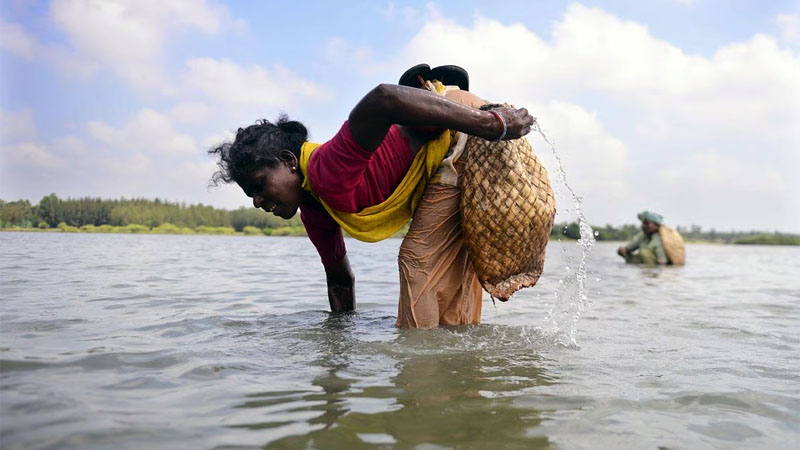Exclusive content

In a bid to safeguard sea turtle populations and support the sustainable harvesting of wild shrimp in India, the Marine Products Export Development Authority (MPEDA), in collaboration with experts from NOAA Fisheries, USA, and the ICAR-Central Institute of Fisheries Technology (CIFT), has orchestrated a series of workshops aimed at advancing Turtle Excluder Device (TED) technology.
Workshop Initiatives and Objectives
From February 19 to 25, workshops on TED construction and field demonstration were conducted across various regions in India, including Andhra Pradesh. The overarching goal of these initiatives is to foster responsible fishing practices that mitigate harm to sea turtles while enhancing the livelihoods of fishermen engaged in shrimp harvesting and exportation.
The endeavor comes in response to regulatory hurdles encountered by Indian shrimp exporters, particularly regarding the certification for exporting wild-caught shrimp to the USA. In 2018, the US Department of State withheld certification for India under Section 609 of US Public Law 101-162, citing non-compliance with NOAA specifications for TED usage in mechanical trawlers. Consequently, India’s shrimp export industry suffered a significant setback, with a loss estimated at USD 550 million.
Impact on Shrimp Export Market
The ban on Indian wild-caught shrimp exports has not only affected the financial viability of fishermen but has also led to a decline in the unit value of shrimp. Prior to the ban, India held a substantial share of the US shrimp market, with exports accounting for 20 percent of the country’s total wild-caught shrimp exports. However, the ban has resulted in a decrease in the selling price of various shrimp varieties, including Black Tiger, White Shrimp, Flower Shrimp, Karikadi, and Poovalan shrimp, at landing points.
To mitigate the adverse effects of the export ban and regain certification status, MPEDA has taken proactive measures. One such initiative involves collaborating with ICAR-CIFT to modify TEDs in alignment with NOAA specifications. The modified TEDs underwent rigorous field trials, earning commendation from NOAA for their efficacy in sea turtle conservation efforts.
Stakeholder Engagement and Future Outlook
The recent workshops organized by MPEDA have played a pivotal role in raising awareness about TED performance within the Indian fishing community. Additionally, the participation of US NOAA Fisheries experts and officials from the US Department of State underscores the significance of international collaboration in advancing sustainable fishing practices.